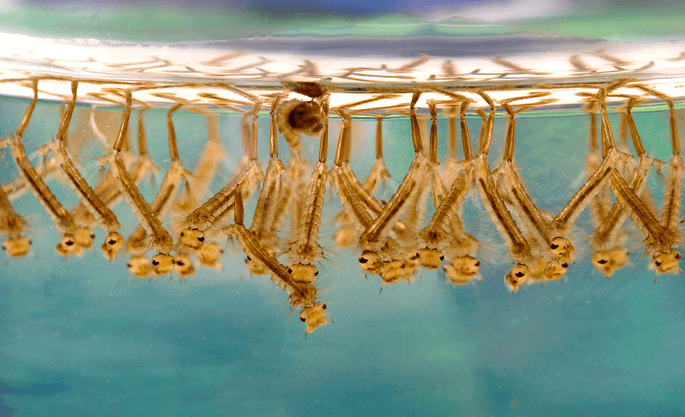Blog
Understanding Mosquitoes – Their Diet and Breeding
To win the battle against mosquitoes, it is important to know some basic truths about them.
Food Habits of Adult Mosquitoes
In most species, both male mosquitoes and female mosquitoes feed on nectar. However, female mosquitoes, in addition to nectar, takes a blood meal. Female mosquitoes require blood meal because it provides fuel for egg development. The blood meal provides iron and protein, two important things required by the developing eggs.
Most mosquito species prefer feeding at dusk or dawn. The evening is the time when female mosquitoes come out to hunt for a blood meal. Both male and female mosquitoes prefer to laze around in a cool, shady area during daytime. With that said, if disturbed, mosquitoes can bite even in daylight hours. While feeding, like many others that feed on the blood of mammals, release their saliva in the victim’s body. This saliva acts like an anticoagulant, allowing the mosquito to freely suck up the blood of the victim.
Adult female mosquitoes use carbon dioxide and another compound to locate food from far away.
Mosquito Saliva
Many changes are triggered inside the host’s body when the mosquito’s saliva is injected into it. In addition to containing an anticoagulant, the mosquito’s saliva contains an antiplatelet and vasodilatory substance.
Digestion of Blood and Development of Eggs
These two are significant features in the female mosquito’s feeding cycle. Amino acids are secreted when the sucked blood enters the abdomen. These acids play a major role in the formation of eggs’ yolk proteins.
Most species thrive well in regions with a tropical or subtropical environment. In regions that are humid and warm, mosquitoes are active practically all round the year. This, however, is not the case in temperate regions, where they go into hibernation during the cold months.
Mosquitoes and Diseases
These pesky creatures are carriers of many diseases, including some fatal diseases. Mosquitoes are vectors of zika, malaria, chikungunya, and dengue, among others.
Effective Mosquito Control
Some believe that for effective mosquito control in Singapore, it is absolutely necessary to seek professional help. While it is true that with help of a reliable pest control firm you can manage even the severest of cases, many a time mosquito control can be effectively done without any outside help.
The first thing to do is clear all stagnant water. As mentioned before, mosquito breed in only a tablespoon of water, so stagnant water is a safe haven for them. Next, you should regularly use mosquito repellents.
Mosquito repellent Singapore come in both organic and non-organic variety. There are many advantages in using organic repellents because they don’t cause an allergic reaction or other harmful side effects, are perfectly safe for the whole family and have a pleasant smell.
If required, use chemical-based mosquito control solutions in your yard or garden. While using these solutions, it is necessary that you follow all recommended instructions to reduce the risk of side effects.

